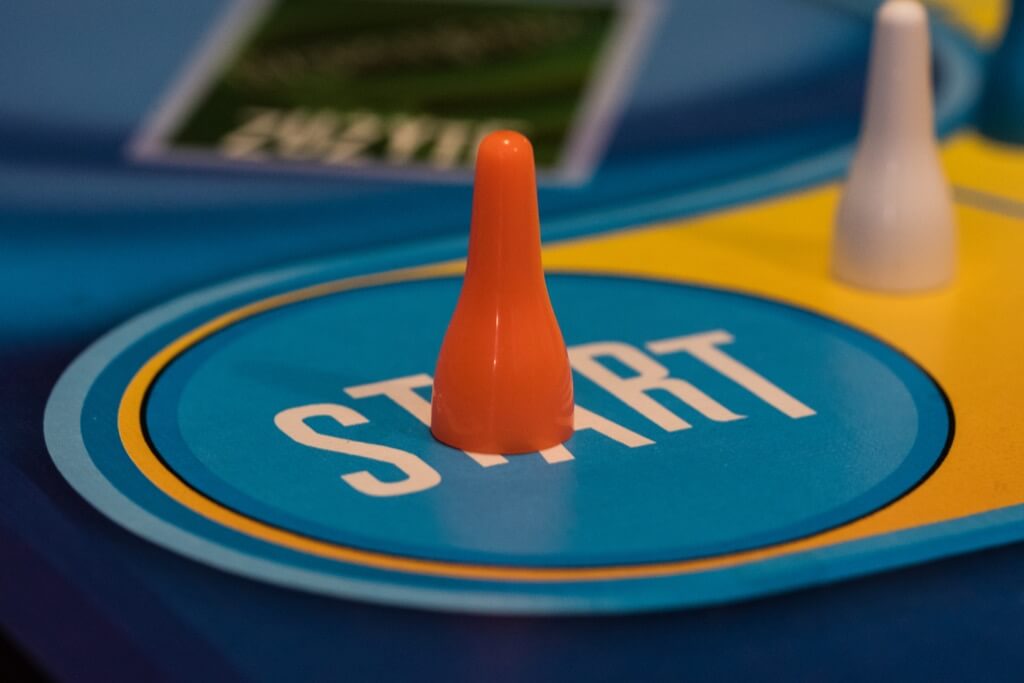Monopoly, a classic board game designed to bankrupt your opponents while you amass wealth, often leads to disputes. Despite Monopoly’s rules remaining largely unchanged over the years, the way people play has deviated from the official rule book. Get ready to uncover the ways you’ve probably been playing Monopoly wrong all your life, just in time for those upcoming holiday family gatherings where a game of Monopoly is almost inevitable.
One of the most widespread Monopoly misconceptions revolves around Free Parking. According to the rule book that accompanies every Monopoly set, Free Parking does absolutely nothing; it’s just a spot for your game piece. Surprisingly, despite this clear instruction, Hasbro, the game’s publisher, receives hundreds of calls each year seeking clarification.
It turns out that the majority of Monopoly players (68%, to be precise) have never bothered to read the actual rules. As a result, Hasbro has introduced what is known as “house rules” in subsequent editions, one of which involves accumulating all the tax dollars and fines in the center of the board and awarding them to any player who lands on Free Parking.
The Misconceptions About The Free Parking in Monopoly
Misconceptions about Free Parking are just the tip of the iceberg when it comes to the common mistakes made in playing Monopoly.
Contrary to popular belief, there is no mandate that players must go around the board once before making property purchases. This false assumption often leads to unnecessary delays in the game. Moreover, if a player decides not to buy a property they land on, the official rulebook allows all players, including the one who declined the purchase, to bid on the property. This adds a layer of strategy to the game and speeds up the overall pace of property acquisition.
Bankrupting a player does not mean immediately seizing their properties. Instead, the official rules dictate that all of their assets should be auctioned off promptly, preventing unnecessary delays and ensuring a fair distribution of assets among players. It’s essential to adhere to this rule for a smoother and more authentic gameplay experience.
The notion that landing on “Go!” entitles you to $400 instead of the usual $200 is a common misconception. The rules do not support this popular house rule, highlighting the need to play according to the official guidelines.
Many players engage in lending and borrowing money among themselves, which can lead to disputes and unnecessarily prolong the game. The rule book explicitly prohibits player loans, emphasizing that all transactions must be conducted through the Bank. Abiding by this rule can help avoid unnecessary conflicts during the game.
The Rules Surrounding Jail Often Lead to Misunderstandings
Contrary to popular belief, being in Jail does not prevent players from engaging in property transactions. It allows players to make strategic moves to their advantage, similar to real-life financial maneuvers.
Monopoly has a limited number of houses and hotels, and once these run out, players must resort to auctions for further property development. Understanding this rule can add a new level of strategy to the game, preventing players from exceeding the game’s construction limitations.
When a player lands on someone else’s property, the property owner must request rent before the next player throws the dice. This often-overlooked rule is an integral part of the official Monopoly guidelines and helps maintain the game’s pace and integrity.
Pros of Free Parking
- Financial Windfall: The Free Parking rule can inject a sudden influx of cash into the game, providing players with a chance to recoup their losses or gain an advantage.
- Extended Gameplay: The accumulation of money in the center of the board through taxes and fines can potentially prolong the game, creating more opportunities for strategic maneuvering and property acquisition.
- Equalizing Factor: Free Parking can serve as an equalizing factor, offering players a chance to bounce back from challenging financial situations and remain competitive, thereby maintaining the game’s excitement and unpredictability.
Cons of Free Parking
- Altered Game Dynamics: The Free Parking rule can disrupt the standard flow of the game by introducing additional financial resources, potentially altering the strategic dynamics and affecting the overall balance of power among players.
- Prolonged Gameplay: The accumulation of funds in Free Parking can lead to longer game durations, causing the game to extend beyond an enjoyable timeframe and potentially leading to player fatigue or disinterest.
- Misinterpretation of Rules: Overemphasis on the Free Parking rule can result in players misunderstanding the actual game mechanics, leading to a disregard for other essential rules and potentially diminishing the overall strategic depth of the game.
Strategies To Maximize The Free Parking In Monopoly
- Strategic Movement: Plan your moves strategically to increase the likelihood of landing on Free Parking. Carefully manage your dice rolls and property acquisitions to position yourself favorably on the board.
- Use of Chance and Community Chest Cards: Capitalize on the opportunities presented by Chance and Community Chest cards to navigate the board strategically, increasing your chances of landing on Free Parking and benefiting from its rewards.
- Tax and Fine Management: Keep an eye on the taxes and fines paid by other players, as these contribute to the pool of money in Free Parking. Adjust your gameplay to potentially capitalize on the increased funds available in this space.
- Property Trading and Negotiation: Engage in property trading and negotiation with other players to potentially maneuver your position on the board and increase your chances of landing on Free Parking, allowing you to take advantage of the accumulated funds.
- Dice Roll Control: Practice controlled dice rolling techniques to influence your movement across the board strategically. Employ tactics such as dice control and calculated rolling to enhance your chances of landing on Free Parking and reaping its benefits.
These overlooked rules have gradually fallen by the wayside over the years, as Monopoly players rely more on word-of-mouth instructions rather than the official rule book. Understanding and adhering to the official rules can lead to a more streamlined and enjoyable gameplay experience, particularly during those holiday gatherings when Monopoly becomes the center of attention.




